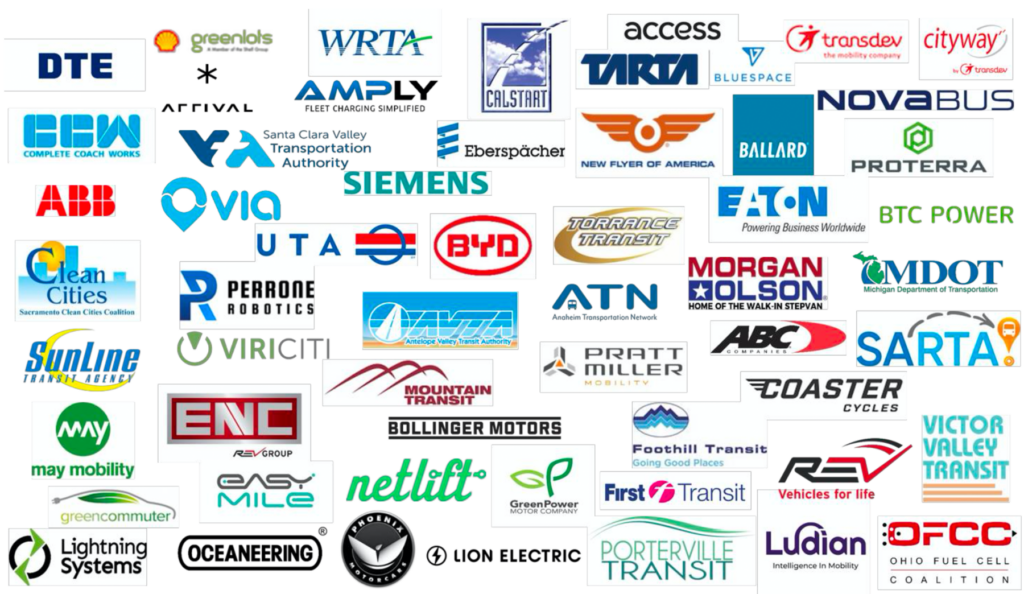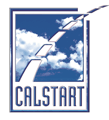Zero-Emission Bus (ZEB) & Innovative Mobility Coalition
The Zero-Emission Bus (ZEB) & Innovative Mobility Coalition is a CALSTART-led partnership between transit agencies, bus manufacturers and suppliers, providers of new and innovative transit modes, and other stakeholders working together to support robust federal investment through U.S. Department of Transportation’s Federal Transit Administration (FTA) in low- and no-emission bus deployment, research, development, and demonstration (RD&D), transit agency technical assistance, and zero-emission innovative mobility options RD&D.
Over the past several months, CALSTART has worked with over fifty partners through the Coalition to develop consensus recommendations for robust FTA investment in clean transit bus deployment and innovation in transit bus and innovative mobility modes. As Congress moves forward on a five-year surface transportation reauthorization bill in 2020, the ZEB & Innovative Mobility Coalition is fighting for robust funding for low- and no-emission bus and innovative transit mode deployments and innovation.
Recommendations
Fourfold increase in Low-No Bus Deployment (49 USC 5339(c)), from $55 million/year to $220 million/year.
Low-No has successfully funded transit agencies of every size across the U.S. to purchase low- and no-emission buses and have helped grow the domestic supplier base. However, each year the program is significantly over- subscribed as fleets race to meet demand. In addition, due to declining ridership due to the coronavirus, transit agencies that are facing financial pressures are faced with the choice of potentially cancelling orders of ZEBs. CALSTART recommends that Congress reauthorize Low-No at $220 million/year starting in FY 2021 to continue to allow transit agencies to purchase meaningful numbers of clean transit vehicles for their fleets. We encourage making awards of all sizes including larger deployments and bus options sized for smaller fleets; encourage awards to support infrastructure needs for zero- or near-zero-emission buses entering transit fleets; and encourage FTA to continue to use partnerships between bus manufacturers, transit agencies, and nonprofits, which have proven an effective way to scale deployments of ZEBs under the program and can help FTA be a better steward taxpayer funds. Low-No should continue to provide funding for both low- and no-emission buses, with a growing emphasis on no-emission vehicles by 2025 in support of the goal of 1000 ZEBs procured per year by 2025.
$50 million/year in research, development, and demonstration (RD&D) and technical assistance for transit bus innovation (49 USC 5312(d)).
The rapid acceleration of low- and no-emission buses requires strong investment through competitive funding opportunities in new technologies to make sure that these vehicles operate cost-effectively, can address market barriers, and can adapt as efficiently as possible to a range of operating environments. The Coalition recommends $50M for competitive transit bus RD&D grants to allow zero- and low-emission bus technologies to be demonstrated for fleets and applications across the U.S. In addition, CALSTART recommends that FTA provide $5 million annually for qualified organizations with experience in the related areas to provide technical assistance to transit operators.
$150 million/year in RD&D for innovative transit modes (49 USC 5312(d)).
Advances in driver assistance and automation, sensors, small electric drive systems and other technologies could help to expand the reach and effectiveness of high-throughput public transportation and could reshape intermodal transit systems. Integration of transit with microtransit, micromobility, ridesharing, and first-mile / last-mile options are growing areas of public transit system interest, innovation, and demonstration. Existing competitive funding for innovative modes is oversubscribed based on number of applicants by a ratio of over 5:1, and is inconsistently competed for year to year. CALSTART recommends that FTA fund $150 million annually for innovative mobility modes through competitive solicitations, and recommends specifically authorizing innovative mobility grant programs and the requirement that they offer annual solicitations. In addition, CALSTART and its members are positioned to help the Committees and the FTA further the discussion of how U.S. transit agencies, the clean bus supply chain, and innovative mobility options stakeholders can work together to meet the moment and plan for a post- COVID-19 transportation reality reshaping public transit in real-time. CALSTART and its members represent a strong and diverse coalition of thought leaders that are poised to help policymakers and leaders in public transit systems, in their many forms, recover and adapt to this public health emergency.
Coalition Members

